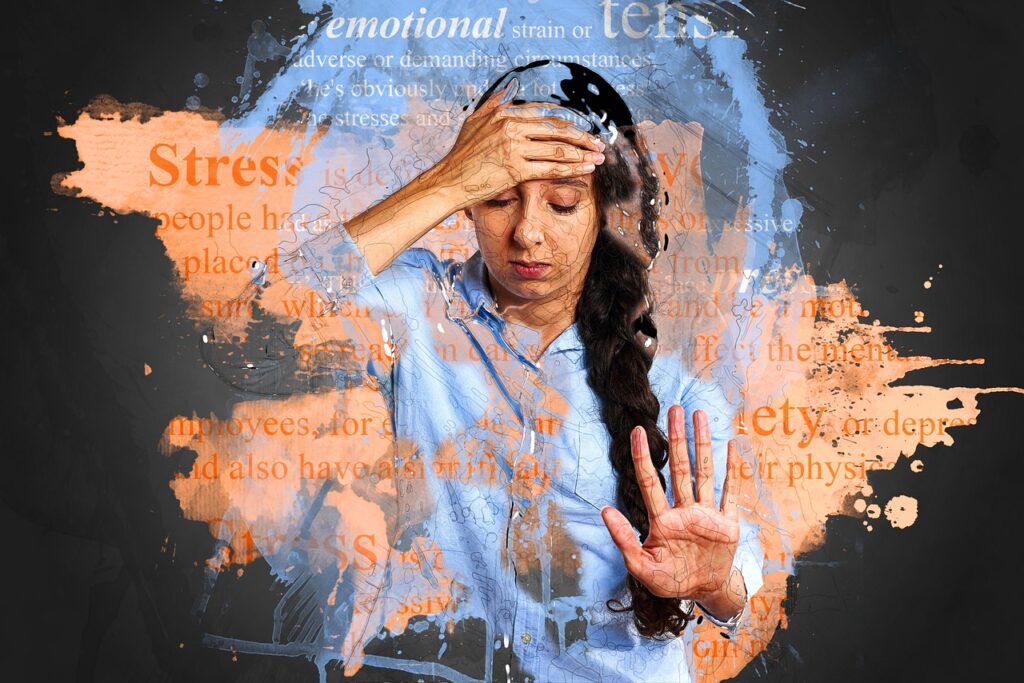
Stress is a normal bodily response to a distressing event; the impact of stress includes making our heart starts race, muscles tense, adrenaline production increases and breathing becomes shallower, blood pressure rises, perspiration increases, and our body temperature increases.
If this happens during times of significant stress and infrequently, that is normal and may not leave any long-term effects on the body. However, what happens if stress is ongoing, happens frequently, and becomes a chronic state of being?

The Impact of Stress in the Long-Term
Prolonged stress can contribute to the development of various illnesses, some of which could become chronic. Stress is a very intense experience and takes a toll on the body so much that it triggers our immune response and could quickly deplete our immune system leaving the person prone to a multitude of issues. Some problems could be resolved upon successful reduction of stress; however, some could be so severe that they become chronic and continue throughout a person’s life.
The following are some of the problems that could occur as an impact of stress:

High Blood Pressure
Blood pressure is one of the first responses of our body as an impact of stress. Our “fight or flight” response activates, and blood pressure quickly increases. Consistent increase in blood pressure over time could lead to heart problems, diagnosis of chronic hypertension or trigger a heart attack.
Migraines and Headaches
Tension headaches and migraines are very common occurrences in people who experience stress. They occur during anticipated stressful events, excessive worry, or even as the aftermath of a stressful period once the body begins to relax.
Spike in Fever
Shock and sudden onset of stress could cause a spike in body temperature. A person could develop a low-grade fever that will have no underlying medical explanation, no viral or bacterial cause, and will be solely a response as an impact of stress. Sometimes, if the event is very stressful and the body is shocked, the fever could spike as high as 106F.
Cold and Flu
As mentioned earlier, stress depletes our immune system and prevents it from effectively fighting illnesses, therefore, leaving us prone to viral and bacterial infections. Cold or the flu are likely to develop during times of high stress, especially after the stressor is over.
The body is in a “fight or flight” mode fighting to make it through a stressful time, utilizing all the energy to cope, and it crashes after the stressor has been removed.
Stomach Problems
A variety of stomach problems could develop, including constipation, diarrhoea, increase in the production of stomach acid which could eventually cause ulcers, persistent nausea, Irritable Bowel Syndrome (IBS), and even haemorrhoids that could lead to a surgical procedure in some cases.
Chronic Pain
As the muscles are tensing as an impact of stress, the risk of developing chronic issues, or worsening of the preexisting ones, such as fibromyalgia, increases. Various muscle groups in our body especially hold tension, and those are muscle groups in our back, chest, shoulders, neck
and hips.
Allergies and Asthma
Stress could manifest through our skin as well, in the form of hives on our body, usually in the neck and chest area. An impact of stress is the production of histamine in the system, and with that, the person’s allergic responses become even more severe. For those suffering from asthma, high stress could trigger an attack and impede a person’s ability to breathe.
Blood Sugar
As the body releases “fight or flight” hormones during times of stress, it can also release cortisol which could trigger the release of glucose from a person’s liver, which could then lead to a sudden spike in blood sugar levels. In more severe cases of trauma, for instance, these levels could remain high for prolonged periods of time, eventually leading to diabetes.

How to Deal with the Impact of Stress in Your Life
Stress, as you can tell, could have a major impact on one’s body and the future of their health. It is important to keep the impact of stress under control and to do what you can to prevent it. If you are experiencing chronic stress, and are unable to change the situation for the time being; perhaps you are experiencing marital problems, work stress, or an illness that you are battling, it is important to do something to balance your body every single day in order to prevent the effect of stress on your physical body.
Some of the ways to effectively cope with the impact of stress include psychotherapy, daily relaxation techniques, such as deep breathing, progressive muscle relaxation, meditation, prayer, journaling, engagement in arts and crafts, writing poetry, taking a walk, doing yoga, exercising, time management, and removing as many triggers as possible from your life.
It also means, if possible, cutting down on the number of responsibilities you have in a day, so you can make room for self-care. Remember, your body is your home, and it should last you for a long time. It is
important to take care of it, and as I always say: self-care is not an option; it’s a necessity.
A word from Celenic Earth Publications: Psychotherapist Suzana Sjenicic does more than just help others in her daily life and career. She also guides others online and in her book we’ve published, Anxiety Free. Make sure you grab a copy of her book to learn how to deal with the stresses of everyday life.


